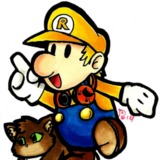I played all of Valkyria Chronicles (Review)
By FCDRandy 0 Comments
With the PC release of Valkyria Chronicles impending, it seems appropriate to share my thoughts based on my play through last year.
I have always enjoyed tactical RPGs. Even if the player experience is basically the same menu-based combat featured in most traditional JRPGs, the thrill of positioning several characters to execute the perfect attack on a single enemy satisfies in a way games like X-COM never could for me. Games like Shining Force, Ogre Battle, and Final Fantasy Tactics empower the player to find creative solutions to a problem with the skill sets they have created, and to build their own narratives about generically-named and non-essential characters, while progressing through the type of character-driven story traditionally found in a JRPG. Valkyria Chronicles is a beautiful tactical RPG that provides everything you want from that type of game, but does little to address some common problems in that genre.
With any tactical RPG, the player experience is lengthened significantly by two necessities: trial and error, and grinding. Though the main storyline may only take fifteen hours to complete, any player without advance knowledge of the strategic events in a story-based battle will likely attempt that encounter several times before success, increasing the time required to finish the game substantially. Precious few battles in my time with Valkyria Chronicles could be won on the first attempt, as new objectives appear or reinforcements arrive to further challenge my already-spent party. Once victory is achieved, the party returns to that same battlefield to engage in a non-story-critical version of that skirmish, as the next battle event will have a significantly higher difficulty than the last. Much of my time with Valkyria Chronicles was spent playing skirmish versions of battles my party had already won in search of experience, money, and items. That's what playing a tactical RPG is like, and Valkyria Chronicles absolutely delivers on the promise of its genre.
The art style of Valkyria Chronicles is hand animation in 2-D and 3-D with a pastel color palette that is beautiful to behold, set to an orchestra soundtrack ranging from operatic bombast to nostalgic lilting. This peaceful aesthetic creates a strange dissonance with the nature of the story, which is essentially a fantasy retelling of World War II, where half of the world is actively seeking to destroy the other half.
The story of Valkyria Chronicles is told in retrospect as excerpts from a history book, following the story of amateur biologist and military tank owner Welkin Gunther, who commands the mostly-improvised Squad 7 to repel and ultimately defeat the invading Imperial Alliance. Cities, homes and lives are destroyed in the defending nation of Gallia, and the game's presentation of this heavy material is jarringly cheerful. Just as few films are able to depict the terror of battle without making it appear exciting, Valkyria Chronicles fails to depict a horrific war without making it appear fun. This doesn't change that the game looks and plays fantastically, just that the aesthetic of the game seems at odds with the gravity of its narrative material.
In between story-advancing battles, the player will generally need to replay previous skirmishes to level up their party, in order to emerge victorious from the next story battle. Most of the player's time in battle will be spent on encounters that have already been defeated, which is part of the nature of tactical RPGs. While my experience with the game may not be reflective of the average player's time, I found the final battle initially impossible to defeat, even after multiple grind battles before and after every story mission. The enemy's health regenerated at a higher rate than my soldiers were able to damage in a single turn. With some extra skirmish sessions, I was able to unlock a single command for my troops that made the battle trivial - my next attempt was victorious after one turn. While the eventual ease of this battle was frustrating, previous battles provided a variety of satisfying challenges, and each victory felt like a hard-earned reward.
While I had some problems with the thematic consistency and some progression decisions, I found Valkyria Chronicles to be a beautiful, challenging, and emotional experience. Few game experiences satisfy like landing a cross-map low-percentage head shot with a sniper to save the life of an exposed scout, and the methodical turn-based tank combat adds tension to every soldier action. If you enjoy a tactical RPG, especially if you haven't played one in a while, Valkyria Chronicles is not to be missed.
I spent 62 hours over 42 episodes playing Valkyria Chronicles, which you can watch below.

Log in to comment